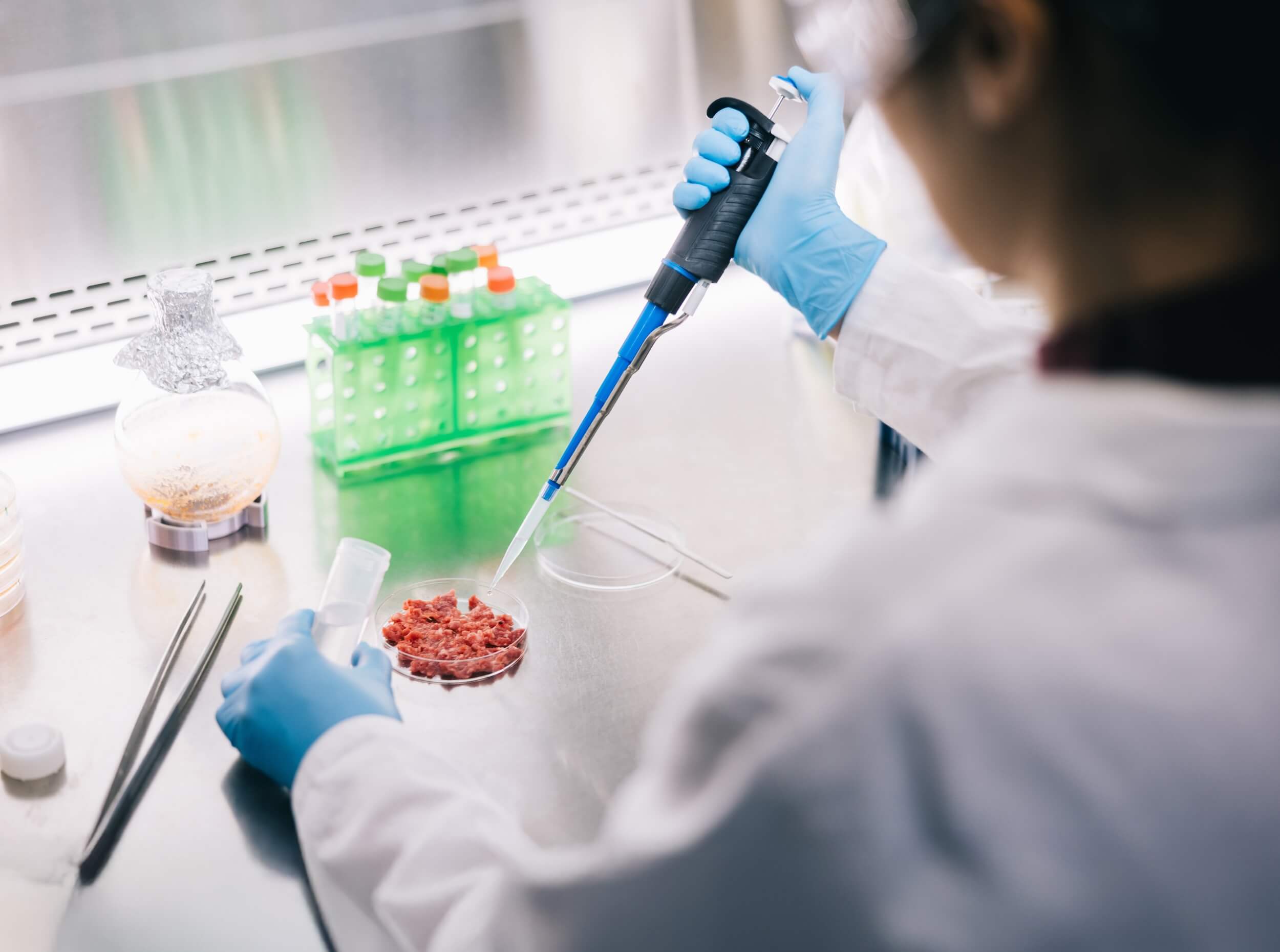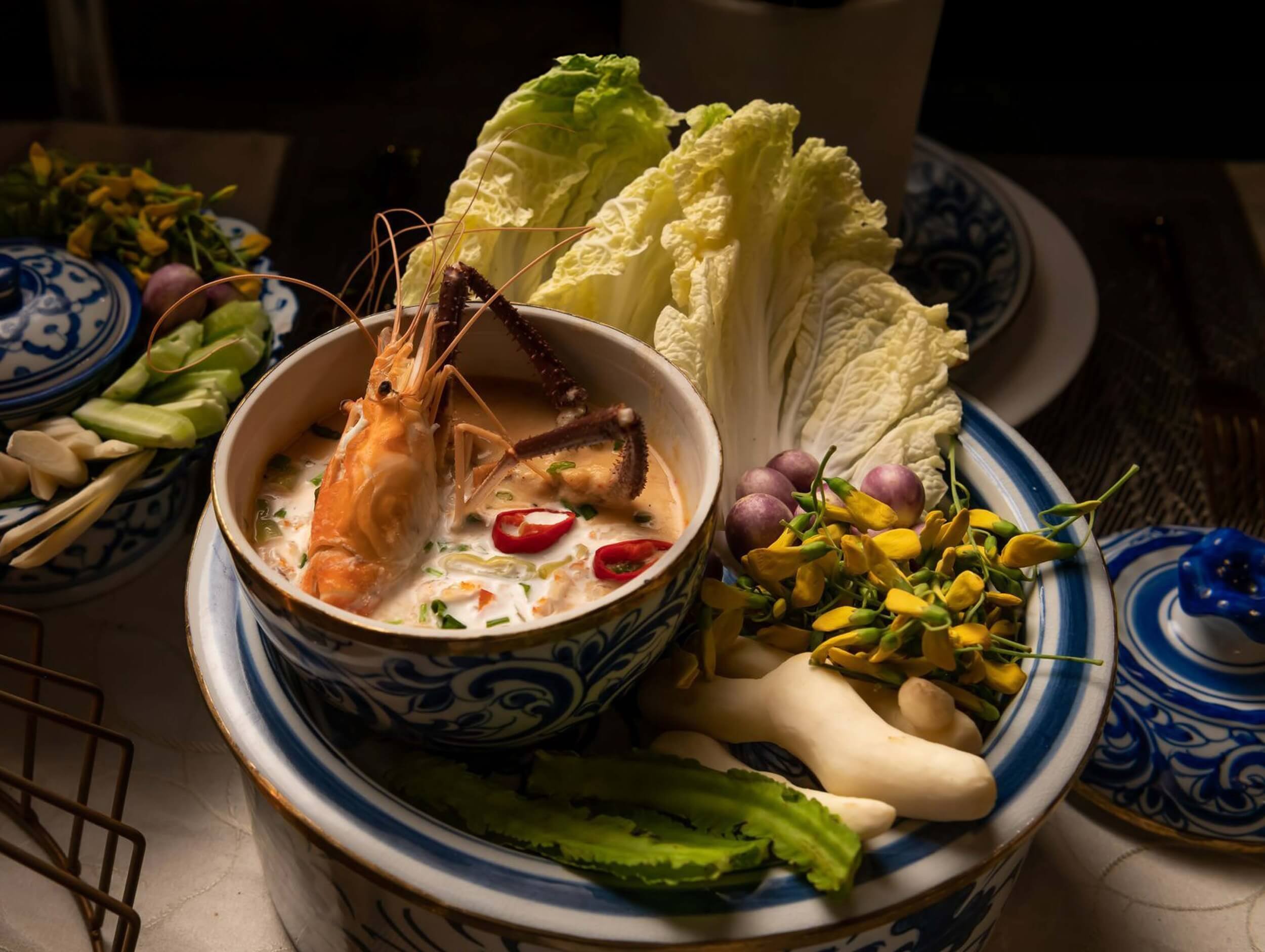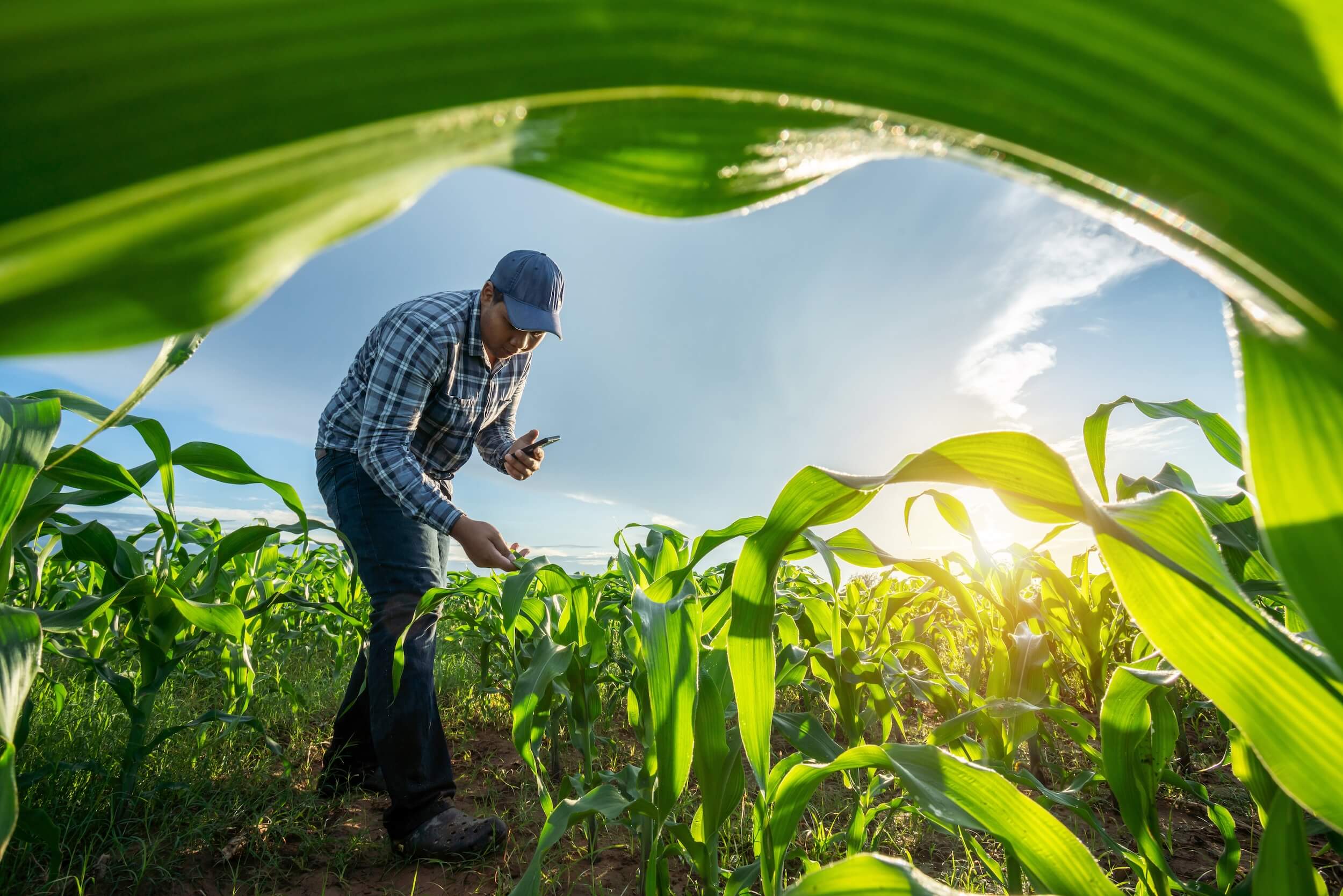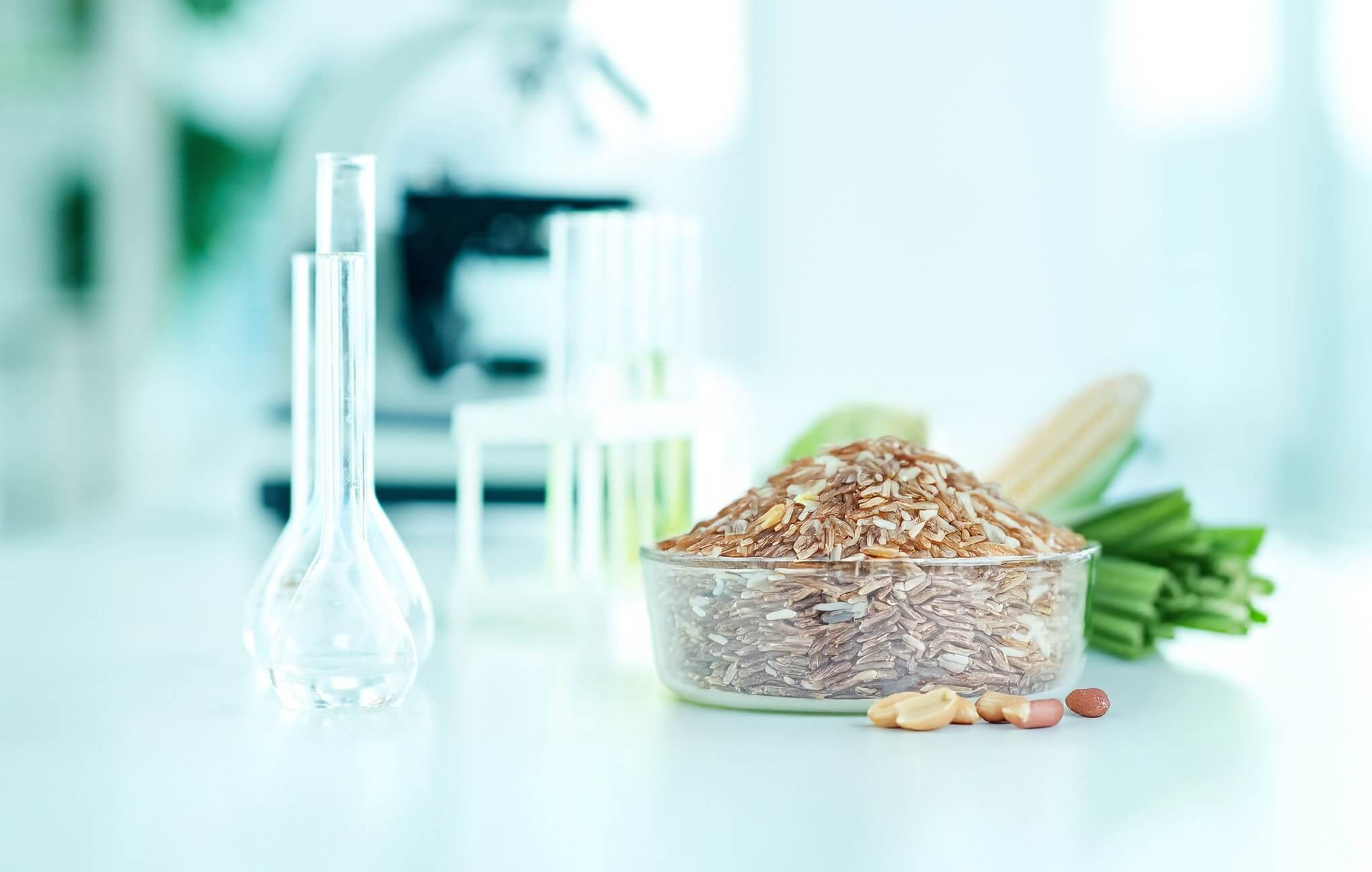



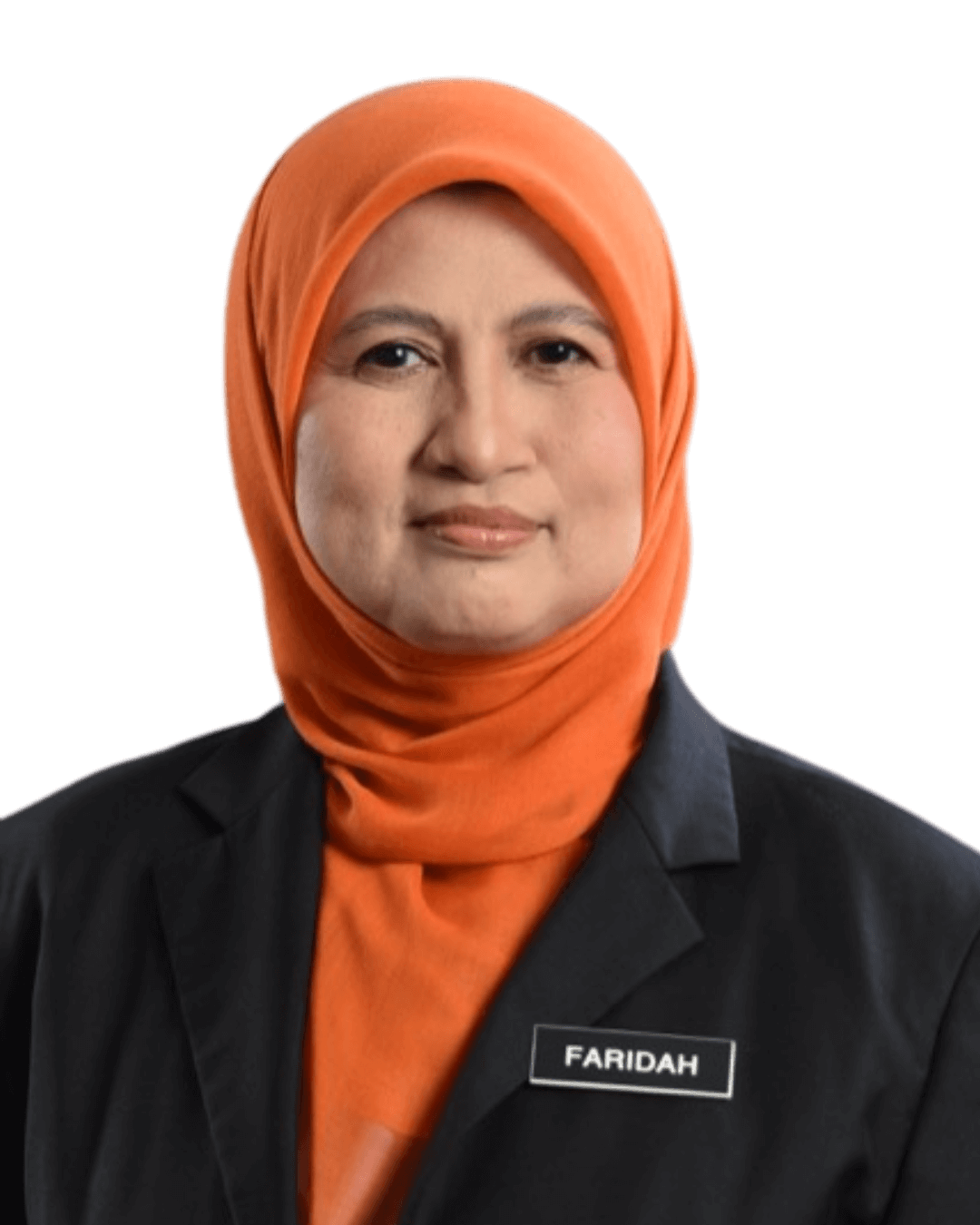
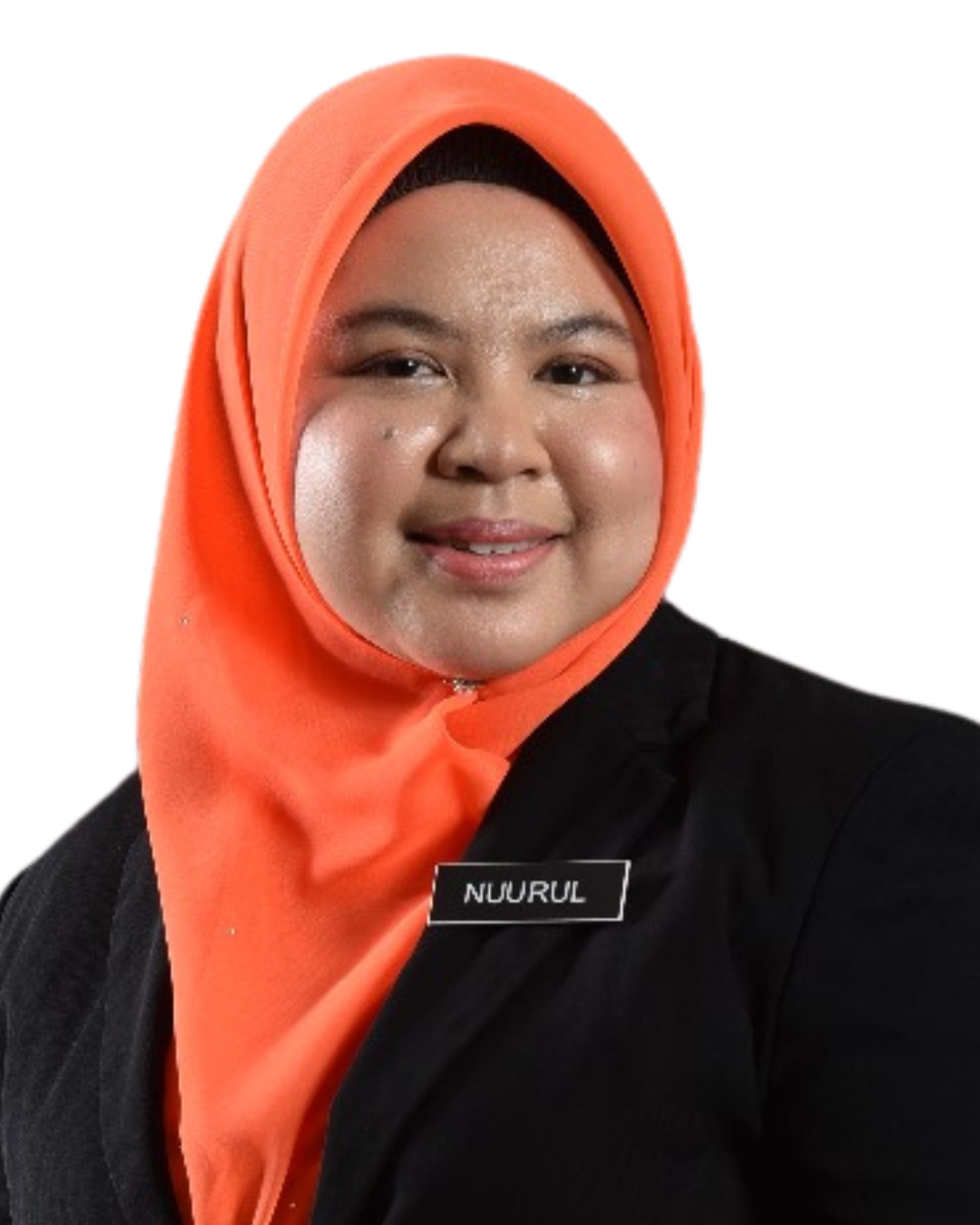

Establishing the ASEAN Risk Assessment Centre (ARAC) based in Malaysia in 2014 is one of the most essential milestones in applying an integrated risk assessment mechanism in the region. ARAC is the regional coordinating centre for independent food safety risk assessment to protect and enhance people's health in the ASEAN Community and facilitate its food trade.
The centre pools and utilises scientific expertise across ASEAN to provide independent scientific opinions and facilitate the development of evidence-based standard food safety measures and mutual recognition arrangements.
ARAC’s mission is to conduct independent food safety risk assessments promptly and transparently, utilising available scientific resources. The objectives of ARAC are to coordinate the implementation of food safety risk assessment in ASEAN, strengthen the risk assessment capacity of ASEAN Member States, facilitate the sharing of information and experiences on risk assessment, provide a pool of qualified experts on risk assessment, and coordinate and communicate with relevant ASEAN Sectoral Bodies and partners.
What ARAC does
The primary function of ARAC is to provide independent scientific opinions on common food safety issues in ASEAN by bringing together scientific expertise across ASEAN, especially in times of crisis. ARAC aims to facilitate the exchange or sharing of information and experiences, develop complementary capabilities and capacities for food safety risk assessment through networking amongst ASEAN Member States and international organisations, and promote ASEAN’s common position on food safety issues. All requests for scientific opinion or risk assessment on food safety by relevant ASEAN risk management bodies or Sectoral Bodies such as Prepared Foodstuff Product Working Group (PFPWG) are submitted to the ASEAN Sectoral Body on Food Safety, acting as the governing body of ARAC.
How ARAC functions
ARAC consists of three main components :
- The Scientific Committee consists of one scientist from each ASEAN Member State. The Committee will evaluate risk assessment requests in terms of completeness and clarity, and provide general direction and coordination of the risk assessment work of the Scientific Panel.
- The Scientific Panel of qualified experts in the relevant field is drawn from the ASEAN Risk Assessor directory. They perform the risk assessment tasks as directed by the Scientific Committee on an as-needed basis.
- The Secretariat of ARAC is composed of personnel provided by the Ministry of Health Malaysia. They provide the needed support for the efficient functioning of ARAC, including the Scientific Committee and Scientific Panel.
At the national level, some ASEAN Member States, especially those with expertise, are further along in implementing risk assessment than others. The technical limitations of some countries affect their ability to generate and assess scientific input for risk-based interventions and regulatory approaches to food safety.
At the ASEAN level, risk assessment activities are undertaken through various initiatives by different ASEAN sectoral bodies. The establishment of ARAC will ensure better coordination of scientific assessment on food safety issues of common interest, the formulation of standard management measures on these common food safety issues, and the efficient utilisation of the scientific resources and avoid duplication of efforts.
ARAC risk assessment projects
The ARAC’s first risk assessment project was the “Risk Assessment on Total Aflatoxins and Aflatoxin B1 through the Consumption of Peanut and Corn.” It aimed to estimate the level of exposure to AFT and AFB1 in peanuts and corn from Indonesia, Malaysia, the Philippines and Thailand; assess the health risk of exposure to AFT and AFB1 from the consumption of peanuts and corn; and recommend effective measures for controlling AFT and AFB1. The findings suggest a possible public health and safety concern; however, due to data limitations, it may not fully represent the actual situation.
Currently, two risk assessment projects are progressing: “Chemical Risk Assessment on Arsenic and Cadmium in Rice among ASEAN Population,” supported by the FAO, and “Microbiological Risk Assessment on Salmonella spp. in Cooked Chicken Dishes,” supported by the International Life Sciences Institute Southeast Asia Region (ILSI SEAR). These projects are vital to strengthening ASEAN’s collective capacity to safeguard its food supply.
The primary collaboration of ARAC with a development partner is through its risk assessment project. A few trainings have been conducted, such as the Regional Workshop on Risk Assessment for Heavy Metal, Regional Workshop Global Environment Monitoring System (GEMS)/Food Contaminants Database, and Capacity Building on Food Safety Risk Analysis for Risk Manager and Risk Assessor of Microbiological Hazards. ARAC will be having a workshop on microbiological risk assessment in July 2025.
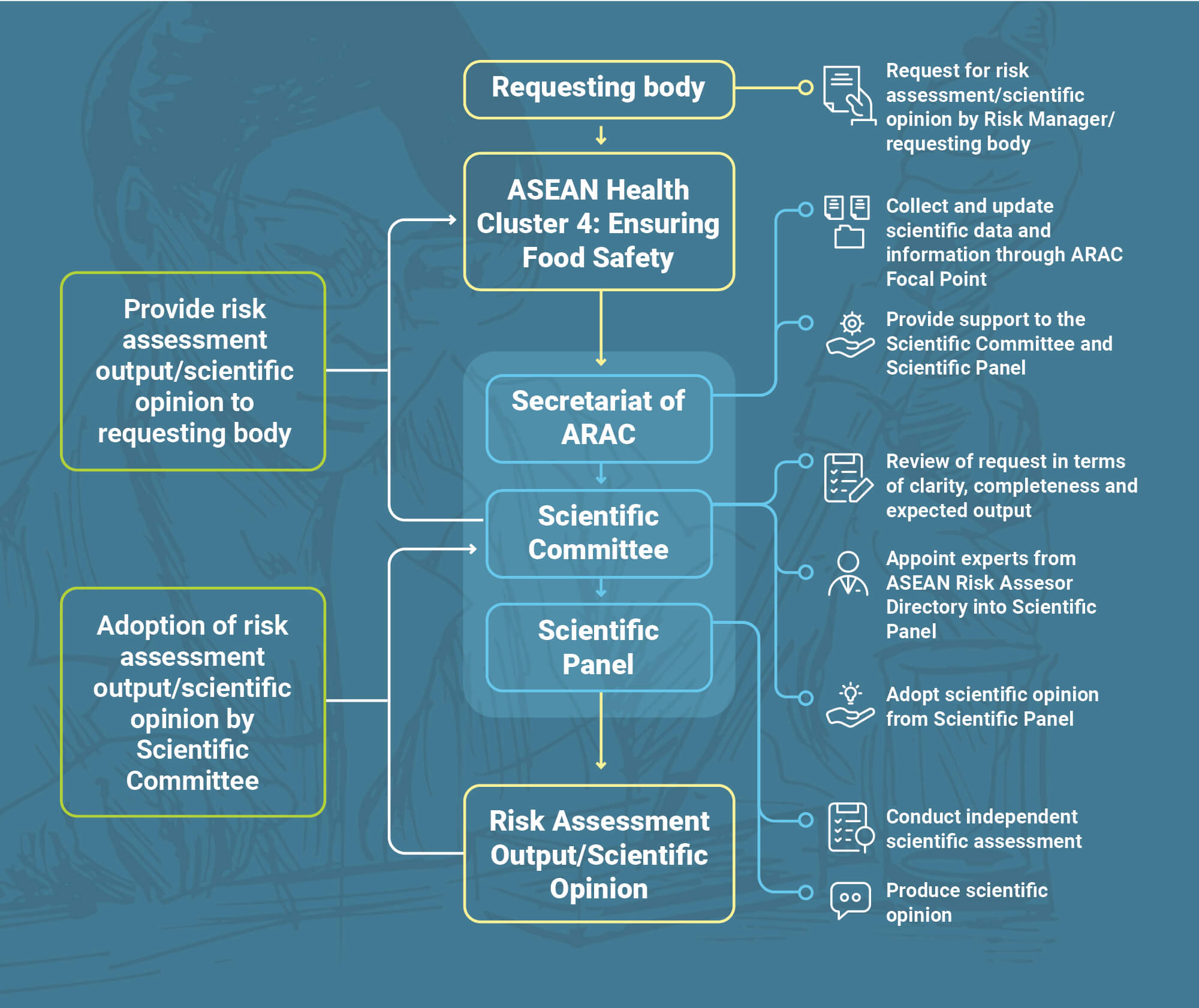
Did you know?
The ASEAN Risk Assessor Directory contains the list of nominated risk assessors and experts by ASEAN Member States. It comprises various fields of expertise in food safety. Every year, ARAC requests ASEAN Member States to nominate experts to be included in the directory. It is an open request; anyone with expertise and experience in risk assessment is welcome to submit a nomination. The ARAC Secretariat relies on the efforts of the ARAC focal points in ASEAN Member States to transmit this call for experts and risk assessors to all relevant national authorities, universities, and research institutes across the country.
The risk assessors will have an opportunity to be appointed as the Scientific Panel of ARAC, offering valuable opportunities for professional development and the chance to contribute to regional food safety risk assessments while working alongside ASEAN and international experts. This initiative will strengthen ASEAN’s ability to conduct risk assessments and ensure food safety across the region. The directory currently has 159 experts listed.
